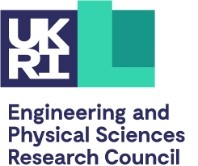The Care-Full Study: A systems approach to older adults with multiple long term conditions’ home-based care: mapping, scoping, feasibility, and modelling of factors affecting outcomes for unpaid caregiving
Start date
July 2023End date
December 2024Overview
An estimated 1.5 million older people have needs beyond state care provision. Unpaid carers, comprising 1 in 5 UK adults, often meet this gap. Though rewarding, caring can also bring emotional, health and financial challenges. Unpaid carers of older people with multiple conditions carry out complex care work, but the current care system neither routinely or proactively identifies, involves, or supports unpaid carers, leading to poorer outcomes for both the unpaid carer and the person cared for.
The Care-Full study will employ participatory workshops and key stakeholder interviews, a literature review and repeat surveys and interviews with a longitudinal cohort of unpaid carers (and those they care for) across three research sites in England to meet the study aims and objective. Additionally, a team of three current or recently former unpaid carers, for an older person with multiple long-term conditions, will serve as peer researchers and support the data collection process and the involvement of unpaid carers in workstream 2 (see below).
By developing a workflow from stakeholder co-creation of systems maps to data collection and mathematically sophisticated models, we aim to create a paradigm that can be used throughout health and social care systems, wherever analysis of interactions among complex factors can enable support for decision-making that transcends an immediate situation, producing better outcomes for all stakeholders.
Aims and objectives
This project brings health science researchers and system engineers together with unpaid carers, older people living with frailty and multi-morbidities, care advocates and care providers, to translate real-world information into a mathematical model of the complex systems and networks of factors around unpaid care. The objective is for predictive modelling to support carers' decision-making, according to multiple objectives that consider their holistic well-being and that of the people they care for. The project aims are to:
- Understand the key events, trajectories, and outcomes for unpaid carers and the older people they care for.
- Identify what evidence and data sources can be collected for modelling this system of care.
- Explore how modelling methods drive interventions to support better outcomes for unpaid carers and older people living with multiple conditions.
Research Work Packages
Work Package 1
Developing understanding of the experiences and current context of unpaid caring and identification of the appropriate tools to measure impact of caregiving.
- Workstream 1: Participatory Systems Mapping (PSM) approach to produce visual map of current context of care.
- Workstream 2: Scoping exercise and feasibility testing to determine acceptability, relevance, and quality of different types of data collection instruments with unpaid carers over time.
Work Package 2
Building prototype systems models to identify links between the experiences and outcomes of unpaid carers and older people living with multi-morbidities to inform optimal service delivery.
Work Package 3
Building the research capacity, infrastructure, and knowledge base to create a national hub for unpaid caregiving research and innovation.
Funders


Team
Core (Surrey) study team

Co-Principal Investigator
Professor Caroline Nicholson
Professor of Palliative Care and Ageing
Biography
Caroline Nicholson is a clinical academic nurse who champions Palliative Care For ALL. She holds a chair in Palliative Care and Ageing within the School of Health Science, University of Surrey and a Visiting professor at St Christopher’s Hospice London.
Caroline qualified as a Registered Nurse at St Bartholomew’s Hospital London. She worked as a specialist Palliative Care Nurse before undertaking a combined BSc (Hons) in Community Nursing DN/HV Certs at King’s College London. She went on to an MSc in Medical Anthropology at Brunel University London before completing her PhD at City University, London in 2009. She is a FHEA from the Institute of Education and holds a diploma in psycho-dynamic approaches to old age from the Tavistock and Portman NHS Foundation Trust, London
Caroline leads a research programme focussed supporting older people and their carers to live AND die well over a life long-lived. https://www.surrey.ac.uk/living-and-dying-well-research She is particularly interested in the transitions that occurs in the last phase of life and supporting integrative services and structures to enable care closer to home. She has published extensively in the field of frailty including co-editing the BGS guidance on end of life and frailty for clinicians across the multi-disciplinary team. She is a core re member of the European Association for Palliative Care Reference group on Ageing and Palliative Care and Faculty member of the International Fellowship in Palliative Care. She has a long-held interest in the experiences and palliative care needs of older people and their families and is co-lead in End of life Care for the British Geriatrics Society.

Co-Principal Investigator
Dr Sotiris Moschoyiannis
Reader in Complex Systems
Biography
I am a mathematician (Maths, University of Patras) doing research in computer science (PhD in Theoretical Computer Science, University of Surrey). My work on Learning and Control in complex networks focuses on when and where to intervene in a network in order to steer to a desirable outcome. I am keen on mathematical methods (control theory, approximations methods) combined with computational methods such as Reinforcement Learning (rule-based, deep).
I am a member of the executive committee of the IEEE Technical Committee on Cloud Computing and the technical committee on IEEE Industrial Informatics.
On the Programme Committee for the annual conference on Complex Networks, the IEEE Service Oriented Computing and Applications (IEEE SOCA), and RuleML+RR (co-Chair in 2020) and the International Rule Challenge (Chair in 2019) for the past 10 years or so.
An IEEE Member (No. 41465193).

Dr Richard Green
Surrey Future Fellow
Biography
Richard was awarded a prestigious Surrey Future Fellowship in April 2023 to develop an ambitious interdisciplinary programme of research focused on understanding and addressing complex challenges in health and social care using artificial intelligence, systems thinking, and simulation methods. His current work explores how agent-based modelling (ABM) and participatory approaches can be used to investigate under-examined areas of care provision and access, primary, community, palliative, unpaid, and integrated care contexts.
Richard’s research vision is shaped by a commitment to advancing qualitative and mixed-method research that accounts for the complexity of care systems and the lived experiences of older adults and their caregivers. He is particularly interested in how simulation methods can support both research and policy.
Richard completed a BSc in Criminology and Sociology at Royal Holloway University and then an MSc in Social Research Methods at the University of Surrey, before completing his PhD in Sociology in partnership with both universities on an ESRC studentship. His PhD explored men's experiences following treatment for prostate cancer in a qualitative interviewing study. Before joining the PALLUP study, Richard worked at the Office for National Statistics as a Senior Research Officer, working on facilitating research access to secure data for research that serves the public good.

Dr Haomiao Jin
Lecturer in Health Data Sciences
Biography
I am a statistician and health data scientist. I received my PhD in Industrial and Systems Engineering and MS in Operations Research from the University of Southern California, and have held research positions in both the UK and the US.
I have been studying the statistical analysis and epidemiological modelling of health and psychosocial behavioural data, with a focus on cognitive health and ageing, chronic disease care, and mental health. My particular interests lie in computational statistical methods, including statistical and machine learning, as well as Bayesian modelling. I am also interested in digital survey technologies and survey methodology.
My work has been funded by the National Institute for Health and Care Research (NIHR) in the UK and the National Institutes of Health (NIH) in the US. My research has been centred around three main themes:
- Epidemiological modelling of longitudinal cohort data
I use population-based longitudinal datasets to investigate the prevalence and behavioural determinants of disease. My work has contributed to understanding dementia prevalence in India and the impacts of employment insecurity on mental health. I have also contributed to developing novel approaches using survey response behaviours—such as response time and item missingness—as indicators of cognitive decline in multinational ageing studies. More recently, I have begun exploring technology use as a modifiable behavioural factor influencing cognitive reserve and dementia. - Improving survey methodology in health and social research
With my engineering and statistical background, I am particularly interested in digital and online surveys and the application of computational techniques in this space. My earlier work contributed to the development of telephone-based mental health assessment tool to support comorbid depression care for individuals with type 2 diabetes. More recently, I have examined modifiable design factors—such as survey length and frequency—to reduce nonresponse in online panels, the link between cognitive function and survey attrition, and machine learning models to predict response time. I am currently exploring how large language models can support accessible digital surveys, particularly for people who are blind or visually impaired. - Collecting and modelling daily life data to support chronic disease care
I have contributed to the modelling of high-frequency survey data (e.g. ecological momentary assessment) to improve diabetes management and better understand mental health conditions like depression and eating disorders. I am currently piloting longitudinal behavioural and quality-of-life surveys among unpaid carers of individuals with multiple chronic conditions. This work supports the development of systems engineering and AI tools for better caregiving support.
Overall, my research is guided by the principle of better data, better modelling—with a particular emphasis on self-reported health and behavioural data. I have published in a range of leading journals, including the Journal of Epidemiology and Community Health, American Journal of Epidemiology, Journal of Biomedical Informatics, and the Journal of Official Statistics. A full list of my publications is available at my Google Scholar page.
My teaching focuses on making statistics more accessible and engaging for learners without a strong quantitative background. I am a Fellow of Advance HE, the UK professional body promoting excellence in higher education. At the University of Surrey, I have been teaching quantitative research methodology to health professionals, including many NHS staff. I have also taught introductory statistics to undergraduates at the University of Southern California. Across these settings, my teaching aims to reduce anxiety around statistical methods and help students build confidence through clear explanations and practical examples. With several years of teaching experience, I have developed an approach that makes statistics not only easier to understand, but also enjoyable to learn. I have also learned a great deal from my students, which has helped me broaden both my knowledge base and my research interests.

Research themes
Find out more about our research at Surrey: